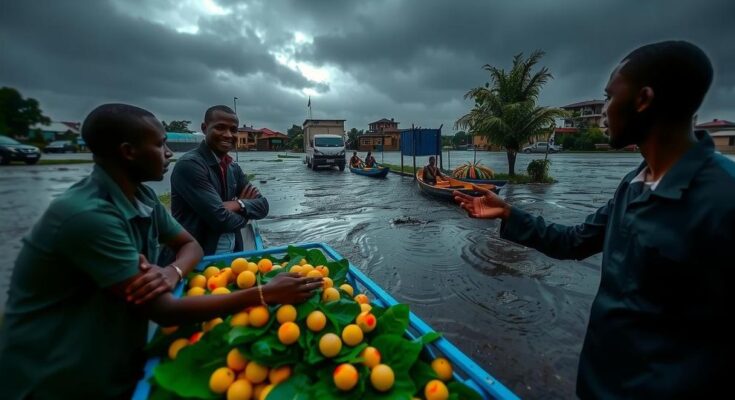A delegation of 19 specialists from Burkina Faso and Togo engaged in a knowledge-sharing mission to Sweden and Italy, focusing on improving flood forecasting and early warning systems. Key learning points included solid waste management to prevent urban floods, the integration of local data for forecasting, and the establishment of legal frameworks for effective disaster risk management. This initiative aims to enhance flood warning systems in both nations, supported by international organizations.
During a significant collaboration effort, specialists from Burkina Faso and Togo engaged in a knowledge-sharing mission to Sweden and Italy, focusing on flood forecasting and early warning systems. This delegation, comprising 19 experts, sought to enhance their operational protocols and frameworks for disaster management through direct insights gained from established systems in Europe. Their journey commenced in Norrkoping, Sweden, where they learned about the production and dissemination of flood forecasts from the Swedish Meteorological and Hydrological Institute (SMHI). The delegation’s visit to Malmo reinforced their understanding of adaptations and resilience measures, particularly emphasizing the management of solid waste to mitigate urban flooding risks. Subsequently, the delegation traveled to Italy, engaged by the Civil Protection in Rome, who elaborated on hazard monitoring and communication strategies among stakeholders in flood warning systems. A visit to a regional Civil Protection Center in Genoa raised awareness on the integration of local data for efficient forecasting. Lastly, discussions with the CIMA Foundation in Savona highlighted the essentiality of a comprehensive legal and operational framework for flood risk management. The insights gained will enable Burkina Faso and Togo to strengthen their flood warning systems, directing efforts towards the development of standard operating procedures based on these observations. This mission was archived under the technical support of SMHI, AGRHYMET, and CIMA, alongside the coordination from the World Meteorological Organization (WMO). Coordinated activities included multiple national institutions tasked with disaster management within the respective countries. The exchange of practices has initiated a pathway for both nations to bolster their forecasting services, thereby advancing disaster risk reduction initiatives.
Flood forecasting and early warning systems are critical tools for managing natural disasters, particularly in regions susceptible to flooding. The integration of advanced meteorological data and local insights can dramatically enhance the responsiveness and efficiency of these systems. Recognizing the need for improved disaster preparedness, Burkina Faso and Togo organized a knowledge-sharing mission to learn from the established frameworks in Sweden and Italy. This initiative was supported by international technical organizations committed to facilitating robust disaster risk management strategies in West Africa.
The knowledge-sharing mission of specialists from Burkina Faso and Togo to Sweden and Italy emphasized the significance of established operational protocols for flood forecasting and disaster management. Key insights included the need for solid waste management to mitigate urban flood risks, harnessing local data for improved forecasting, and establishing a robust legal framework for effective flood risk management. The collaborative efforts signify a progressive step toward enhancing flood warning systems and fostering resilience in both countries.
Original Source: www.miragenews.com




